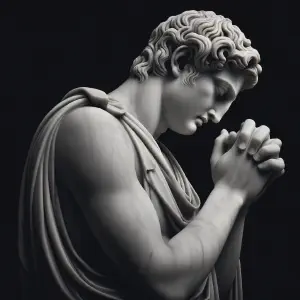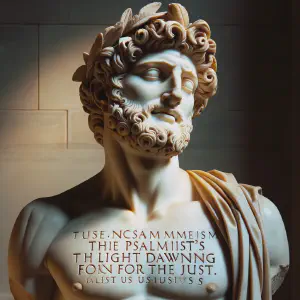The Dawn of Redemption
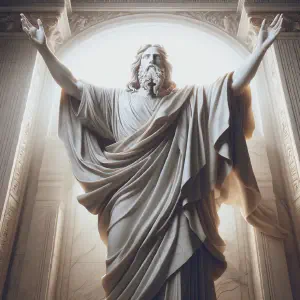
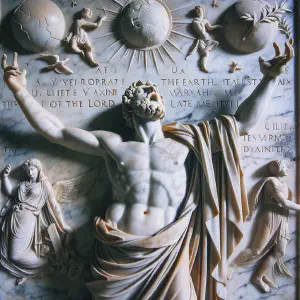
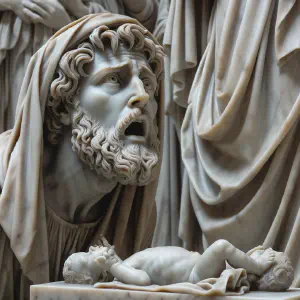
The Gospel, as narrated by Luke, captured the earthly manifestation of this divine plan. Angels departed, leaving behind a message that stirred the hearts of shepherds in Bethlehem. Driven by a divine urging, they hastened to witness the wonder that had been revealed to them. In a humble manger, they found the infant Jesus, the central figure of the prophecies and psalms, lying with Mary and Joseph. The shepherds, now messengers of this celestial event, shared their experience, leaving all who heard in awe. Mary, the mother of Jesus, pondered these events in her heart, a silent witness to the unfolding of salvation history. The shepherds returned to their fields, their hearts alight with praise and glory for what they had seen and heard, a fulfillment of the divine promise.
Five Questions
How does the prophecy in Isaiah relate to the events in the Gospel of Luke?
The prophecy in Isaiah sets the stage for the fulfillment of God’s promise, which is realized in the Gospel of Luke. Isaiah speaks of a savior coming with rewards, addressing Daughter Zion - a symbol of God’s people. This directly correlates with the birth of Jesus in Luke’s Gospel, where the angels announce the Savior’s birth to the shepherds. The prophecy’s fulfillment is not just in the birth itself, but in the transformation it signifies for humanity – from being forsaken to becoming a holy, redeemed people.
What is the significance of the shepherds’ role in the Gospel story?
The shepherds in the Gospel of Luke symbolize humility and the universality of Jesus’ message. Their role is significant because they were among the first to receive the news of Christ’s birth, despite their low social status. This underscores the idea that the message of Jesus is for all, irrespective of social standing. Their immediate response to the angel’s message and their subsequent sharing of the news with others highlight the importance of receiving and spreading God’s word.
In the readings, how is the theme of light used to convey a deeper meaning?
The theme of light in these readings, especially in the Psalm, is a powerful metaphor for the arrival of Jesus and the transformation He brings. Light symbolizes hope, guidance, and the dispelling of darkness, which is representative of sin and ignorance. The Psalmist talks about light dawning for the just and gladness for the upright of heart, connecting the coming of Jesus with joy and righteousness. This light is a beacon of God’s presence, illuminating the path towards salvation and truth.
How does Titus’ message about grace and rebirth complement the other readings?
Titus’ message provides a theological foundation for understanding the significance of Jesus’ birth. It emphasizes that salvation and rebirth are not the result of human deeds but are acts of God’s mercy and grace. This complements the narrative in Luke and the prophecy in Isaiah by reinforcing the idea that the Savior’s coming is a divine initiative, a gift of love to humanity. The concept of rebirth and renewal by the Holy Spirit ties directly to the transformative impact of Jesus’ coming, marking a new beginning for mankind.
What lessons can we draw from Mary’s reaction to the events in Luke’s Gospel?
Mary’s reaction in Luke’s Gospel offers profound lessons in faith and contemplation. Her quiet reflection on the events surrounding Jesus’ birth serves as a model for how believers should approach the mysteries of faith. Instead of seeking immediate answers or showcasing her experience, Mary ponders these events in her heart. This teaches us the value of internalizing and reflecting on our experiences with God, allowing them to deepen our understanding and faith. It’s a reminder that sometimes, the most profound encounters with the divine require a contemplative, receptive heart.
Bible Study
Isaiah 62:11-12
See, the LORD proclaims
to the ends of the earth:
say to daughter Zion,
your savior comes!
Here is his reward with him,
his recompense before him.
They shall be called the holy people,
the redeemed of the LORD,
and you shall be called “Frequented,”
a city that is not forsaken.
This passage from Isaiah features God as the central character, proclaiming a message of hope and redemption to Zion, symbolizing His people. The passage foreshadows the coming of the Savior, embodying God’s promise of salvation. It aligns with Catholic values by emphasizing God’s mercy and the transformation of the forsaken into a holy people, echoing themes of redemption and God’s covenant love, as reflected in the Catechism’s teachings on God’s faithful love and mercy.
Psalm 97:1, 6, 11-12
R. A light will shine on us this day: the Lord is born for us.
The LORD is king; let the earth rejoice;
let the many isles be glad.
The heavens proclaim his justice,
and all peoples see his glory.
R. A light will shine on us this day: the Lord is born for us.
Light dawns for the just;
and gladness, for the upright of heart.
Be glad in the LORD, you just,
and give thanks to his holy name.
R. A light will shine on us this day: the Lord is born for us.
In this Psalm, God is portrayed as a just and powerful king, bringing light and joy to the righteous. The Psalmist, as the voice of the faithful, expresses joy and gratitude towards God. This Psalm aligns with Catholic values by celebrating God’s justice and the joy that comes from righteousness. It reflects the Catholic teachings on God’s justice, the call to rejoice in the Lord, and the responsibility to live a life of righteousness, resonating with the Beatitudes and the Acts of Mercy.
Titus 3:4-7
Beloved:
When the kindness and generous love
of God our savior appeared,
not because of any righteous deeds we had done
but because of his mercy,
He saved us through the bath of rebirth
and renewal by the Holy Spirit,
whom he richly poured out on us
through Jesus Christ our savior,
so that we might be justified by his grace
and become heirs in hope of eternal life.
The passage from Titus presents God as a benevolent savior and the Holy Spirit as a source of rebirth and renewal. Titus, a companion of Paul and an early Church leader, emphasizes God’s mercy and grace over human deeds. This teaching aligns with Catholic doctrines of grace, justification, and the sacrament of Baptism. It reflects the Catholic understanding of salvation as a gift of God’s grace, not earned by works but given freely, embodying the Church’s teachings on divine mercy and the transformative power of the Holy Spirit.
Luke 2:15-20
When the angels went away from them to heaven,
the shepherds said to one another,
“Let us go, then, to Bethlehem
to see this thing that has taken place,
which the Lord has made known to us.”
So they went in haste and found Mary and Joseph,
and the infant lying in the manger.
When they saw this,
they made known the message
that had been told them about this child.
All who heard it were amazed
by what had been told them by the shepherds.
And Mary kept all these things,
reflecting on them in her heart.
Then the shepherds returned,
glorifying and praising God
for all they had heard and seen,
just as it had been told to them.
In Luke’s account, the key characters are the shepherds, Mary, Joseph, and the infant Jesus. The shepherds, representing humility and obedience, respond to the angelic announcement by visiting Jesus. Mary, the mother of Jesus, reflects on these events, symbolizing contemplative faith. This passage aligns with Catholic values by emphasizing the humility of the shepherds, the role of Mary in salvation history, and the incarnation of Jesus. It reflects Catholic teachings on the Nativity, the importance of humble faith, and the Virgin Mary’s role as the Mother of God and model of faith.
Lessons
These passages collectively teach us about the profound love and mercy of God, which culminate in the coming of our Savior, Jesus Christ. They remind us that redemption and salvation are not earned through our deeds but are gifts of God’s grace. The joyous response of creation, the earth, and its people, as depicted in the Psalm, emphasizes the universal nature of Christ’s birth. The humility and faith of the shepherds, who hastened to witness the infant Jesus, serve as a model for our own response to God’s call. In Mary’s contemplative heart, we find a guide for how to ponder and treasure the mysteries of our faith. Ultimately, these readings reinforce the Christian belief in the transformative power of God’s love, expressed in the birth and life of Jesus, which brings hope and light to a world in need of redemption.
Meditation Prayer
